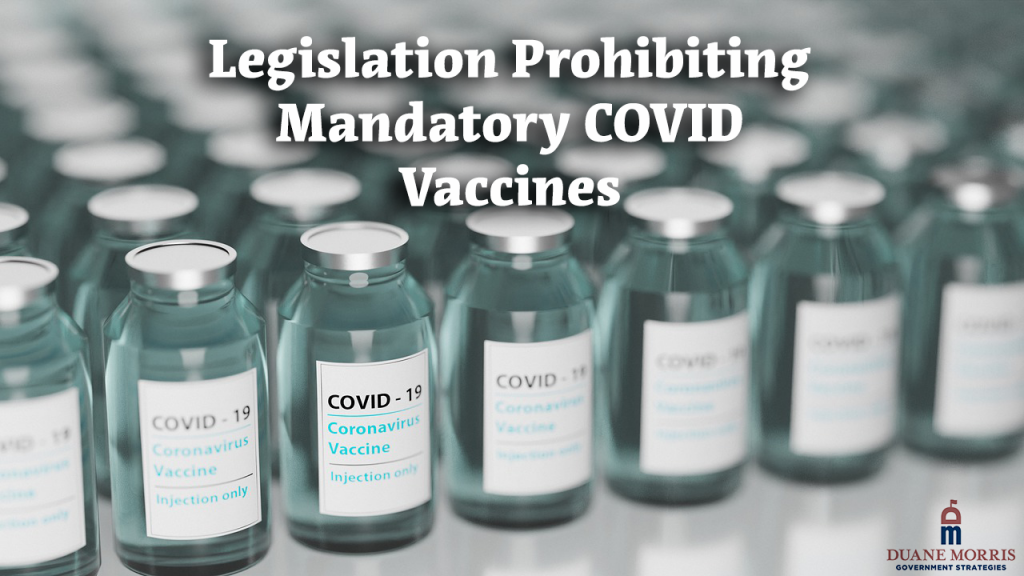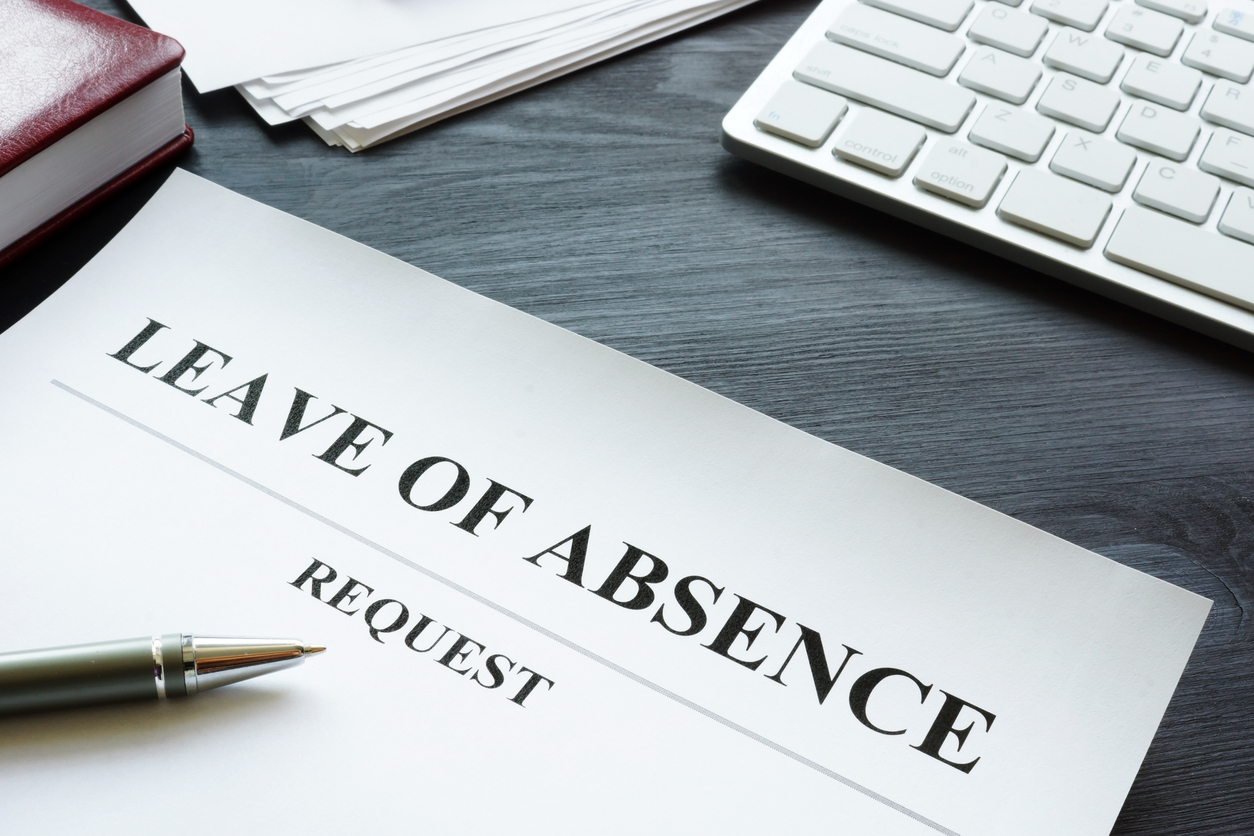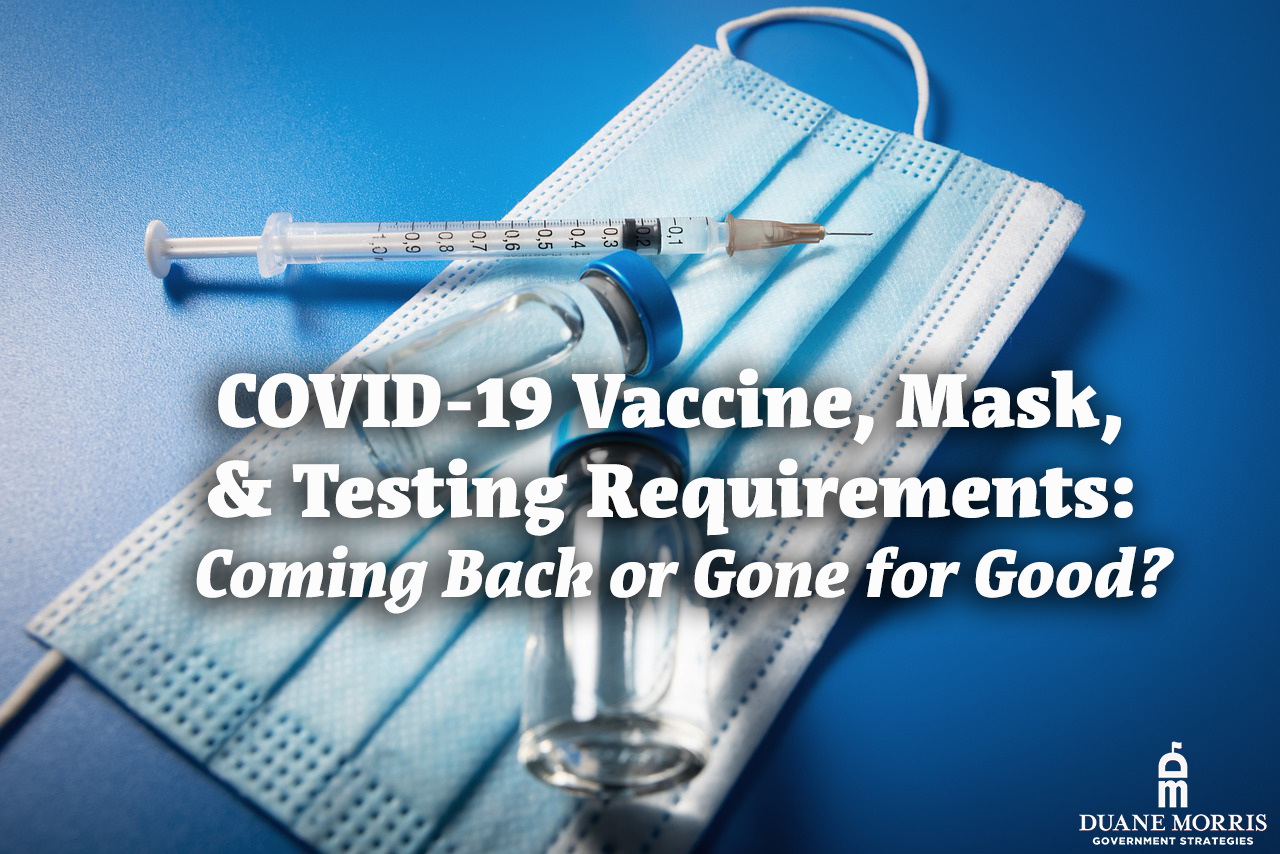
With more and more people getting vaccinated for the coronavirus every day, questions arise over whether COVID vaccines should be required. Some lawmakers already looked at mandating flu vaccines in the fall and winter, but what will a post-COVID world look like with mandatory COVID vaccines? With the potential implementation of mandatory COVID vaccine legislation or executive action, many state lawmakers are looking at legislation prohibiting mandatory COVID vaccines.
Arizona: Legislation Prohibiting Mandatory COVID Vaccines
Arizona lawmakers introduced SB 1648 in early February. The legislation, which the Legislature has not yet voted on, provides that a person may not be required to take, be administered, or otherwise receive or disclose whether they have taken, been administered, or otherwise received a COVID-19 vaccine as a condition of employment, entry into any business or public space, or receipt of any service or good. The bill prohibits discrimination for refusing to take, be administered, or otherwise receive a COVID-19 vaccine.
SB 1648 defines “public space” as places of public accommodation, any building or space, indoors or outdoors, owned, leased, operated, occupied, or otherwise used by a public body. Any other building or space, whether indoors or outdoors, that is generally open to the public.
Georgia: Mandatory COVID Vaccine Prohibitions
Georgia state lawmakers introduced HB 413 in February, addressing the issue of mandating vaccinations. Under the bill, no state or local government law, rule, or order shall require the receipt of COVID-19 vaccines for any reason, including as a condition of employment, school attendance, professional licensure, educational certification or degree, admittance to any place of business or entertainment, or access to any mode of transportation, if the following requirements have not been met:
- The vaccine has been licensed for use, not including emergency use authorization by the FDA;
- The vaccine has been evaluated for its long-term potential to cause cancer, impair fertility, mutate genes, or cause autoimmune, neurological, or any other chronic or serious adverse effects;
- The pivotal clinical trial relied upon by the FDA for approval of the vaccine product has been evaluated for its safety under certain conditions;
- Studies have been conducted to determine what injuries and health conditions may be caused by the vaccine when administered alone or with other vaccines;
- The risk of permanent disability and death from the vaccine has been proven to be less than that caused by the disease it is intended to prevent;
- The infection targeted by the vaccine product is highly transmissible in public settings;
- The infection targeted by the vaccine poses a grave health risk to the population being required to receive it; and
- The vaccine has been proven to prevent person-to-person transmission of the targeted infection.
HB 413 was referred to the House Health and Human Services Committee.
Idaho: Prohibiting State Vaccine Mandates
Introduced in January, House Bill 63 would prohibit the governor or any agency of any governmental entity or political subdivision of the state, including during the continuance of any state of disaster or emergency, from adopting or enforcing any law, rule, regulation, or ordinance that mandates, requires, or orders the vaccination, immunization, genetic modulation, or inoculation of any person. The bill also prohibits the same parties above from issuing an order of isolation and quarantine based solely or primarily upon the vaccination status of any person.
House Concurrent Resolution 9 also would address mandatory vaccinations. The resolution would affirm the Legislature’s belief that no mandate or mechanism in state law would ever permit or justify the use of forced immigrations, vaccinations, inoculations, or genetic modulations of any person, even during times of emergency such as the current pandemic. The resolution further states the Legislature shall oppose efforts by any person or entity, including the federal government, to require, mandate, or force any person to receive immunizations, vaccinations, inoculations, or genetic modulations.
Maryland: Legislation to Prohibit Employees being Terminated for refusing a COVID Vaccine
Maryland lawmakers introduced legislation to prohibit mandatory vaccines in early February. House Bill 1171 would prohibit an employer from terminating an employee solely based on the employee’s refusal to receive a COVID-19 vaccine. The legislation states an employee waives the right to file a civil action against the employer if the employee has refused to receive a COVID-19 vaccine offered by the employer or otherwise made available to the employee and if the employee contracts COVID-19 in the course of their employment.
The bill defines an employer as a state or local government unit or a person who acts directly or indirectly in another employer’s interest with an employee.
House Bill 1171 is an emergency bill that would terminate December 31, 2023. The bill was scheduled for a hearing in early March but has not advanced at this point.
Nebraska: Legislation Affirming the Right to Accept or Decline a Mandatory Vaccination Directive from the State
Nebraska lawmakers introduced at least two pieces of legislation related to mandatory vaccines. LB 643 would affirm each citizen’s right, parents’ right concerning their dependents, and each business’s right concerning its employees to accept or decline a mandatory vaccination directive by the Nebraska state government. Such rights include a state of emergency declared by the Governor, and declining a mandatory vaccination directive would deliver no implication, penalty, litigation, or punishment by the state to the citizen, parent, or business.
Under current Nebraska law, there are two ways for parents to opt-out of immunizations for their children who attend daycare: a medical reason and a parental statement giving their own reason why they do not want to immunize. LB 447 would reduce the reasons to justify a medical reason certified by a medical provider.
Neither piece of legislation has advanced through the Health and Human Services Committee at this point.
Wisconsin: Gubernatorial Veto
Governor Tony Evers vetoed Assembly Bill 1 in early February. The bill would have, among other things, prohibited employers from requiring vaccination as a condition of employment, with medical and religious exemptions.
In Evers’ veto message, he stated employers requiring vaccination as a condition of employment would strip them of their ability to keep their business and community safe. Evers further noted the bill’s provisions would make it more challenging to mitigate the virus and take away the tools available to public health officials and employers.
However, lawmakers in the Wisconsin Assembly have since passed two additional bills pending in the state Senate.
Assembly Bill 23 would prohibit the Department of Health Services and local health officers from requiring individuals to receive a COVID-19 vaccine. Under current state law, during a state of emergency related to public health declared by the governor, DHS may order any individual to receive a vaccination except under certain medical circumstances or if the individual objects for religious or conscience reasons and may isolate or quarantine an individual who is unwilling or unable to get vaccinated.
Assembly Bill 25 would prohibit an employer from requiring an individual to receive a COVID-19 vaccine or show evidence of receiving a vaccine.
Related DMGS Articles
- How Many People Are Fully Vaccinated In Your State: Our 50 State Guide
- COVID-19 Vaccination Paid Leave
- Federal Developments and Support for COVID-19 Testing
- What’s in the American Rescue Plan
- COVID-19 Vaccine Plans by State: Phased-Approaches and Who Will Have Access First
- State Action on Mandatory Flu Vaccines
Latest News
In this episode of the Back in Session podcast, hosts Ryan Stevens and Ryan DeMara sit down with Terra McClelland, President of the State Government Affairs Council (SGAC) and Vice President of Government and External [...]
Photo credit: iStock.com/designer491 Various kinds of leave exist for workers, such as family leave, sick leave, parental leave, and vacation leave. In addition to these more traditional types of leave, after the Covid-19 pandemic, state [...]
Digital collage by Ryan Stevens; image sources by JillWellington and mmi9 from Pixabay Technological advancements in recent years have made virtual learning a possibility for K–12 schools. With virtual learning a possibility, some states and [...]
Digital collage by Ryan Stevens; image source by ronstik from Pixabay From the outset of the COVID-19 pandemic, DMGS has provided updates from various states looking to implement new restrictions or lift them. If you [...]






Stay In Touch